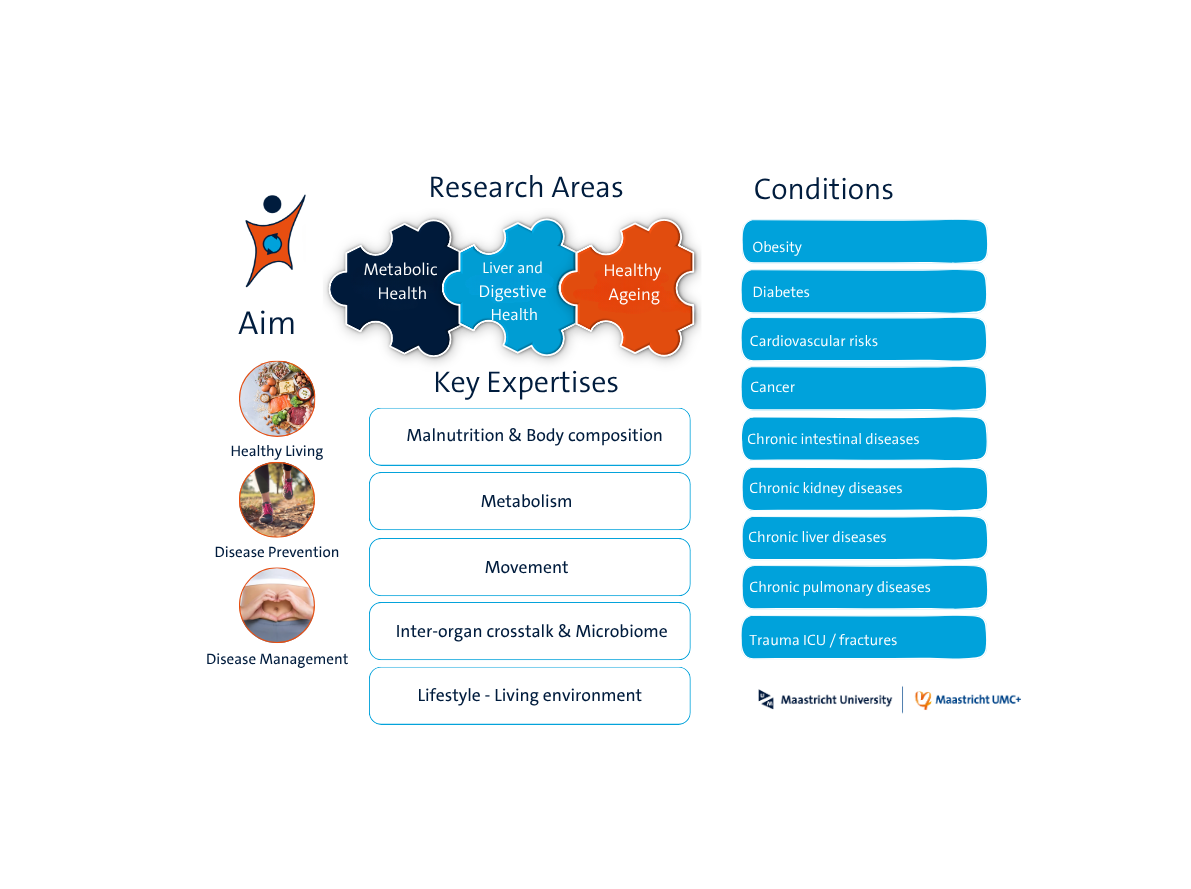NUTRIM Research
Research focus and expertise
NUTRIM conducts cutting-edge translational research on chronic metabolic and inflammatory diseases that significantly impact society. The institute's comprehensive research program investigates the intricate relationships between lifestyle choices and disease-specific elements in the development and advancement of metabolic inflammatory and chronic conditions. This work aims to develop tailored therapeutic approaches, personalized strategies, lifestyle interventions, and preventive measures.
Included are 21 basic - and clinical sciences departments of Maastricht University Medical Centre+ (MUMC+) that encompass the entire spectrum of basic, translational, clinical, and prevention projects. Providing NUTRIM with a distinct international health sciences profile that optimally fits within the Maastricht UMC+ care vision and organisation.

Research themes and key expertises
Our core research is organised around integrated multidisciplinary themes in three research areas, covering five key expertise areas and focusing on multi divers chronic conditions.
With the availability of unique patient cohorts and biobank as well as an internationally distinct, state of the art infrastructure for metabolic phenotyping allowing a network-based approach linking tissue and organ systems within chronic metabolic disorders we are able to mentor scientists at different stages of their academic career.
In its PhD programme NUTRIM aims to meet the demand for scientists who are acquainted with novel fundamental research concepts and are equipped to optimise the translation from science to the clinic and to public health.
NUTRIM Research areas
1. Metabolic Health
Our goals in research area 1 are to create a better mechanistic understanding of the etiology of obesity, type 2 diabetes and cardiovascular disease, which all affect global health.
Led by Jogchum Plat & Susan Steinbusch
Our research in metabolic health
Case Studies of research area 1

2. Liver & Digestive Health
Central disorders investigated in research area 2 include inflammatory bowel disease, liver failure, irritable bowel syndrome, cancer cachexia, cholestasis and non-alcoholic steatohepatitis.
Led by John Penders & Ronit Shiri Sverdlov
Our research in liver and digestive health
Case Studies of research area 2

3. Healthy Ageing
Research in area 3 aims to understand the onset of disease related to age and lifestyle and to identify people with an enhanced risk for disease and (re-)hospitalisation effectively early.
Led by Luc van Loon & Ramon Langen
Our research in healthy ageing
Case Studies of research area 3
